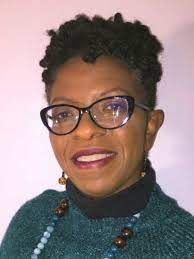By Zavia Jenkins and Glenda Simmons Jenkins, Ocean Conservancy
On the first day of spring this year, my mother and I trekked the forest behind our house to reach the salt marsh at the edge of our property. When we met the cluster of palm trees, my eyes scanned the same terrain my grandmother and her siblings saw in their youth.
I was the fourth generation of Gullah/Geechee women to see the marsh’s rising tide and tall seagrass, to step onto the rich soil at the edge of the marsh and to be shadowed by the towering pine trees.

The salt marsh in Nassau County is a constant that connects me to my past. It is a natural buffer that has protected our home from flooding and severe storm damage for years. Today, it is one of the few ecological habitats in our community to remain physically undisturbed. It serves as a testament to our cultural resilience.
However, climate change has altered the landscape since my grandmother and her siblings crabbed on the marsh. Now, I am the first generation that has not seen the flickering glow of fireflies among the trees, the once plentiful oyster beds and crabs, nor harvested deer tongue like my grandmother.
I live in just one of many communities along the coast experiencing the impacts of climate change. Gullah/Geechees share customs and traditions, like farming and fishing, that are directly tied to coastal ecosystems. These traditions connect us as a people who rely on the ocean for survival.
But as climate change worsens and development, urbanization and road construction increase the effects of pollutants and stormwater runoff, we are faced with the potential loss of marshlands as a valuable natural resource. And the loss of these marshlands could mean the loss of our culture and our people.
The Fourth National Climate Assessment Report (NCA4) found that in the United States climate-related impacts are disrupting agriculture, fishing and recreation in Indigenous and coastal communities. Furthermore, the damage is causing some communities to consider relocation to adapt. We need Florida’s Congressional Delegation to prioritize climate action because it is inextricably linked to cultural sustainability.

President Biden’s Build Back Better Act would fund projects to restore oyster beds and shorelines, protect wetlands that store carbon and protect communities from intensifying storms. These initiatives will bolster the Gullah/Geechee people in our collective effort to protect the environment and continue living in harmony with it. These efforts will preserve the people.
As a community, we need Congress to pass the Act. As a people, our posterity depends on it. I may have been the generation to see unfortunate firsts, but I want to be the first generation to witness a meaningful step in the right direction through climate action. That way, the generations after me can see the same fruitful, functioning salt marsh my great-grandparents saw.
This op-ed first appeared on Jacksonville.com and in The Florida Times Union.
Zavia Jenkins serves as the Roger Arliner Young (RAY) Diversity Florida Policy Fellow for the Ocean Conservancy. Rep. Glenda Simmons Jenkins serves as the Florida member of the Gullah Geechee Nation Assembly of Representatives. She is Zavia’s mother and co-author of this column.
“The Invading Sea” is the opinion arm of the Florida Climate Reporting Network, a collaborative of news organizations across the state focusing on the threats posed by the warming climate.



